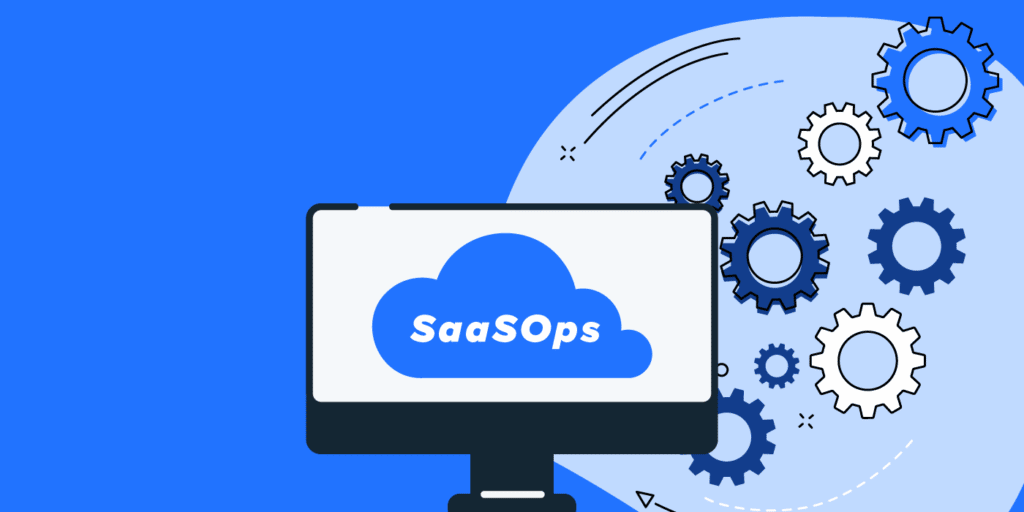Asked by Our Community, Answered by an Expert: 10 Questions About the Future of Work and How It Will Affect IT
December 16, 2016
6 minute read

In our third-ever AMA, best-selling author and futurist Jacob Morgan answered 10 questions from our BetterIT community members. (For those unaware, BetterIT is our new IT-focused Slack community. We think it’s pretty neat. The community consists of more than 600 forward-thinking IT professionals who enjoying chatting about IT and sharing best practices with one another. With more than 25 channels, there’s something for everyone.)
You can join for free here.
Below Jacob shares insight he’s gained in researching hundreds of organizations and working with tech companies like IBM, SAP, and Microsoft. Some questions and answers were edited for clarity.
Which organizations benefit most from an open floor plan? Which benefit the least?
Jacob Morgan: The idea of open vs. closed floor plans misses the point. The forward-thinking organizations are actually creating multiple floor plans. There’s a great study by Leesman which shows that there are 21 different activities employees perform at work.
Companies like CBRE have created 16 different options/ways for employees to work instead of just thinking about this as closed vs. open.
How will wearables change how we work?
Jacob Morgan: Depending on the research/reports you read wearables are either growing like crazy or stagnating! At the moment, it seems as though the majority of applications for wearable devices are either around fitness tracking and activity or around things such as visualizing information (for example, an email or a document), or around alerts. The nearer-term applications here also include using things such as virtual and augmented reality, but those will be a bit farther out before they are perfected and scaled, right now they are mainly in pilots.
What are some of they key decisions/strategies that IT departments need to keep in mind, but often overlook, when prepping for a growing percentage of remote (home office) colleagues?
Jacob Morgan: For remote work, there are a few things that IT teams need to keep in mind 1) is changing the way we “manage” employees we can’t see 2) making sure that employees have access to technologies that enable them to work just as effectively at work as at home and 3) is focusing on consumer-grade technologies, meaning they are so good, so beautiful, and valuable that employees would consider using something similar in their personal lives if it existed.
I would also make sure to focus on the needs of the employees instead of simply on the IT requirements, which oftentimes tends to be the case.
Will IT departments shrink when companies move to the cloud because it takes fewer people to manage their infrastructure? Are old-fashioned system administrator skills (like server maintenance) dead-end skills? What IT skills do you suggest we invest in for the future?
Jacob Morgan: That’s a great question. It’s hard to say. This is the same discussion (but at a smaller scale) that we are having around AI/automation and the impact it will have on jobs. Shifting to the cloud definitely means few IT people are required for traditional IT things, however, there could be plenty of opportunities for IT to evolve and for the IT teams to change what they do. For example, instead of resetting passwords and managing servers IT teams can work closer with lines of business to understand their needs and how to leverage something like AI.
I actually think there’s never been a more exciting time to be in IT because we have all of these amazing new technologies that organizations need help figuring out how to use. Cloud computing is one aspect but what about wearables, AI, the internet of things, collaboration technologies, big data/analytics, virtual and augmented reality, and all the other cool stuff? These things are just barely making their way into our organizations today, so I would think that IT should be quite busy over the coming years. Some organizations like Accenture are already experimenting with using holograms to host meetings!
You’ve mentioned you’ve done a lot of research lately with hundreds of organizations, what exactly were you researching and what was your most interesting/surprising finding?
Jacob Morgan: So my new book is called, “The Employee Experience Advantage,” and for those that are curious you can see the Amazon page here. For the book, I analyzed 252 organizations around the world to figure out how effective organizations are at creating a great employee experience. I define employee experience as the combination of culture, technology, and the physical work environment. Basically, I had to research what employees care about most when it comes to culture, tech, and the physical workspace. I then categorized organizations into nine categories depending on how good they are at creating a great employee experience. It turns out that from the 252 organizations only 15 (6%) do an amazing job of focusing on all three things. I then looked at all sorts of metrics to justify the ROI of investing in employee experience and doing an AMAZING job at it. I looked at things like stock price performance, employee retention, revenue, profit, etc. The organizations that deliver the best employee experience dominate all others in every aspect.
The book is coming out March 20 and shortly before it does I will release the rankings and the survey so that anyone can take it.
Speaking of your books, I was just looking at your book, “The Collaborative Organization.” Do you think the steps outlined in that book are still relevant today? Has anything changed in the last five years that you’d care to speak to?
Jacob Morgan: Oh, absolutely. I’m actually quite surprised to see that there hasn’t been THAT much progress in the collaboration space since 2012. However, the big positive change we have seen is that now these efforts aren’t being approached in isolation, they are being looked at as broader “future of work” efforts which I think is great.
As I’m sure you know, this used to be called social business, enterprise 2.0, etc. That whole area has gradually died off as people realized that collaboration is one aspect of a broader discussion around how the workplace is changing.
But for those that are specifically interested in collaboration. Here are the top 12 things you can do to drive adoption/success.
How do you see the increasing ratio of millennials (and younger) in the workplace affecting how things are done?
Jacob Morgan: I think we can all agree that over the past few years we have been a bit over saturated with the millennial conversation. It’s pretty much been over hyped, over promoted, and overdone. Most of the studies which I have seen actually show that millennials are quite similar to other generations. The reason why so much attention is being placed on this group is because they are currently the largest workplace demographic and because by 2020 they will comprise 50% of the workforce. Now, it’s true that there are differences, but there are more similarities than differences. Personally, all of this hype around millennials has been a great force for organizations to really start to think differently, it’s like an adrenaline shot!
Do you recommend any services that greatly aid in company-wide collaboration?
Jacob Morgan: That’s a tough one. Let’s be honest, many of the tools out there are rather similar and they are all copying each other which means that if you are using something that is missing a certain feature, just wait a few months and it will be there! I’d focus more on the employee needs and then build from there. Here are two frameworks you might find useful: The Feature Adoption Framework for Social Collaboration & Mapping Use Cases to Collaboration Platform Requirements.
This book from 2012 has pretty much anything and everything you need regarding collaboration.
We have a large push and pull scenario between centralized workers and decentralized workers. “Must be in Bay Area” vs. “Work from Everywhere.” How does that play into the future of the workplace?
Jacob Morgan: It’s about flexibility and balance, let those who want to work anywhere do just that and those who want to work from the Bay Area come in. If that’s not possible, then have a meeting with the employees, explain the situation and why you really believe people need to come into the office–but mention you also value their input and want them to happy. Then see what solutions you guys can come up with. The right answer is never to decide for others but to help them collaboratively decide with you.
What role do you think social media will play in the future of the workplace? We have Workplace from Facebook, which basically uses Facebook’s interface, removing the barrier to entry for most users, for example.
Jacob Morgan: We will absolutely see more consumer-grade technologies like Facebook and even Glassdoor in the workplace. Imagine having the level of transparency around your managers and executives where you can rate and review anyone you want! There was a time when organizations tried to block all of that, now they are embracing it, copying it, and deploying it. The consumer web has fueled much of the trends for the enterprise and I think that’s a great thing!
Join Our Slack Community: BetterIT
If you’d like to take part in the next AMA or just talk IT with other people like you, join the BetterIT Slack community. The community is now over 600 members strong and growing.





